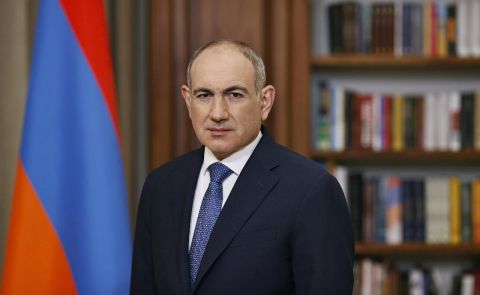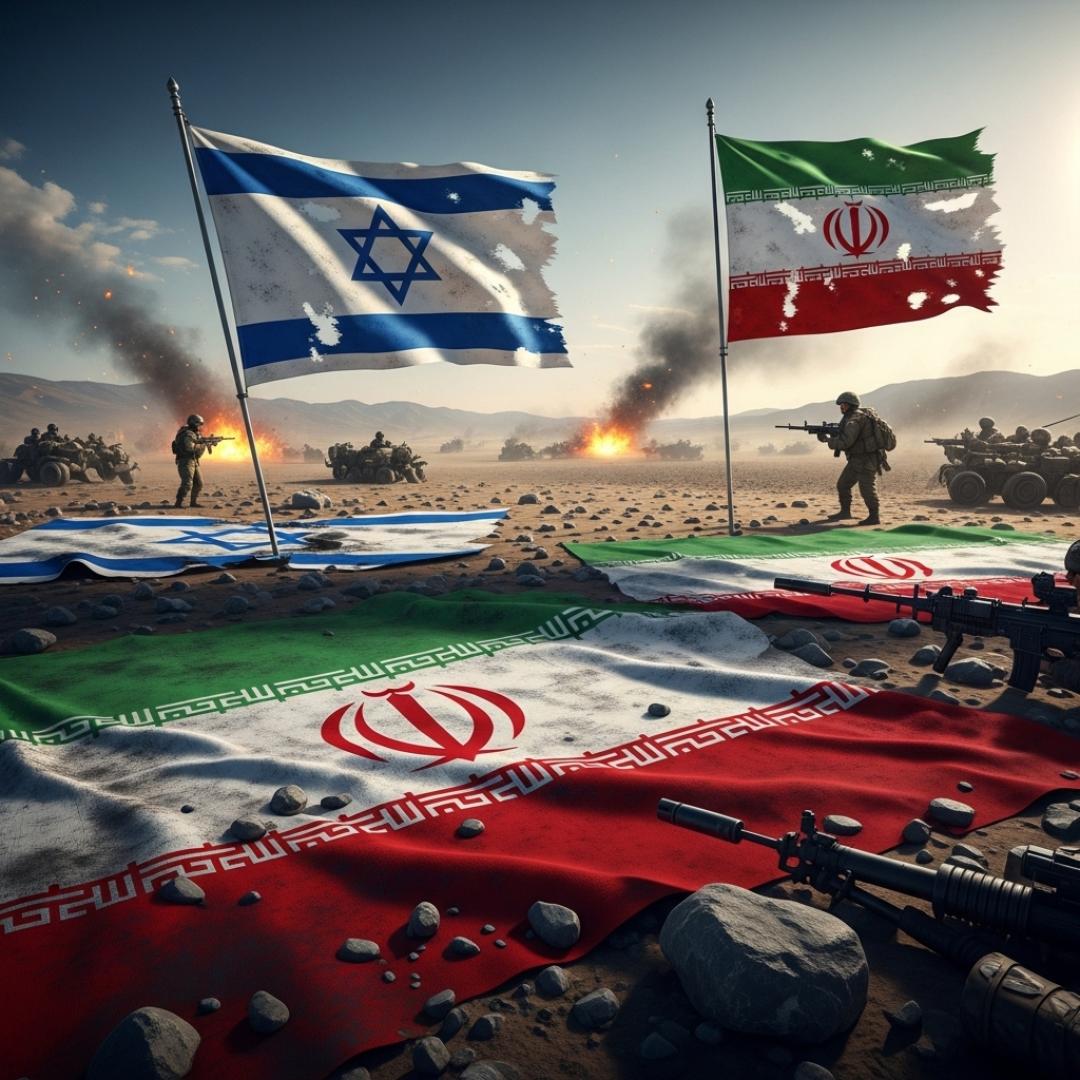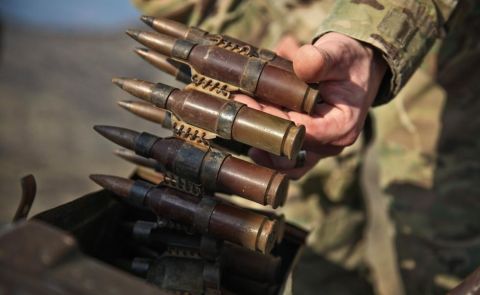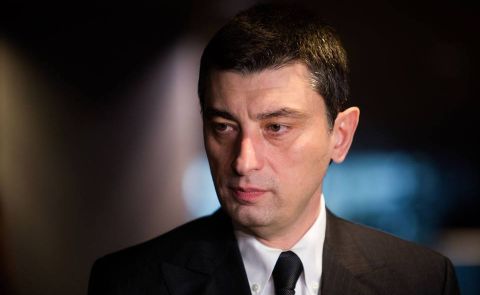
How Do Caucasus States React to Israel-Iran War?

On June 13, 2025, Israel launched Operation Rising Lion, a large-scale aerial campaign targeting Iran’s nuclear infrastructure, surface-to-surface missile sites, and IRGC command centers, particularly around Natanz, Tehran, Isfahan, Shiraz, and Bushehr. The strikes reportedly killed high-ranking IRGC figures, including Hossein Salami, Iran’s IRGC commander, along with scientists, generals, and technicians. The Mossad played a key role by deploying miniature drones to neutralize air defenses and missile launchers before the main attack.
In response, Iran launched a massive missile and drone barrage against Israel, named Operation True Promise III, with 150–200 ballistic missiles and over 100 drones striking Tel Aviv, Haifa, and other central areas between June 13–16. Iranian attacks reportedly killed 8–14 Israeli civilians and injured dozens, while Israeli strikes reportedly killed 224–406 Iranians, including many civilians. Civilian infrastructure, including homes, power plants, and oil refineries in both countries, was damaged.
Armenia
On June 13, Armenian officials condemned Israel’s attack on Iran, emphasizing its negative impact on regional stability and calling for a peaceful resolution, according to statements made during the APRI Armenia forum and other events.
Alen Simonyan, Speaker of the National Assembly of Armenia, noted that the attack occurred during a pause in nuclear negotiations, undermining global and regional peace efforts. “Armenia condemns this attack and calls for immediate de-escalation and a peaceful resolution in accordance with international law,” Simonyan stated.
Armen Grigoryan, Secretary of Armenia’s Security Council, stated at the APRI Armenia forum that the primary threat to Armenia’s security remains conventional military risks affecting both Armenia and the broader region. “What happened today is not only a threat to Iran or the Middle East but also a problem for Armenia. Armenia continues to work to contribute to regional stability,” Grigoryan emphasized.
At the APRI Forum, Grigoryan reiterated Armenia’s commitment to a peace agenda aimed at achieving lasting regional stability. He clarified that Armenia’s acquisition of modern weapons is solely to protect its territorial integrity and sovereignty. Regarding Armenia-Azerbaijan relations and communication restoration, Grigoryan highlighted the “Crossroads of Peace” project, which aims to restore communication channels based on sovereignty, equality, and reciprocity.
During a panel discussion titled “Finding Stability in an Unstable World” at APRI-2025, Grigoryan noted that Armenia had prepared for potential military escalation by planning for various scenarios. “We have plans for these scenarios, and we will act accordingly,” he stated. He further described Israel’s attack as an encroachment on Iran’s territorial integrity, negatively affecting the region, and expressed hope for a swift, peaceful resolution.
Armenian Prime Minister Nikol Pashinyan condemned Israel’s attack on Iran during the GLOBSEC 2025 forum in the Czech Republic, expressing concern over the region’s fragile stability. “This jeopard of escalation jeopardizes the fragile stability in our region, and we are very concerned,” Pashinyan said.
Arman Sargsyan, Deputy Minister of Defense of Armenia, told journalists that the border situation remained relatively stable, though any regional escalation was a cause for concern. When asked about risks to Syunik amid nearby Turkish and Azerbaijani military exercises, Sargsyan affirmed that Armenia would defend its borders to the best of its ability if necessary, while emphasizing the importance of political efforts to prevent escalation.
On June 15, Indian Foreign Minister Subrahmanyam Jaishankar posted on social media about his meeting with Armenian Foreign Minister Ararat Mirzoyan in Marseille, noting a productive discussion on close cooperation and regional developments.
On June 14, Foreign Minister Ararat Mirzoyan, in a phone conversation with his Iranian counterpart Abbas Araghchi, discussed recent developments and exchanged views on the current situation. Mirzoyan emphasized Armenia’s stance on the importance of risk management and avoiding escalation. “We continue to maintain close contact, including on discussions surrounding the IAEA,” he wrote on social media.
Azerbaijan
On June 13, Azerbaijani Defense Minister Colonel General Zakir Hasanov sent condolences for the death of Lieutenant General Mohammad Hossein Bagheri, Chief of Iran’s General Staff, describing him as a professional and respected figure.
Also on June 13, Hikmat Hajiyev, Assistant to the President of Azerbaijan, dismissed allegations in some media and social networks claiming that Azerbaijan recruited ethnic Azerbaijanis to spy in Iran for Israel, categorically rejecting the accusations as fabricated.
Due to heightened regional tensions, Baku suspended Baku-Nakhchivan-Baku bus routes passing through Iran on June 13. Flight restrictions over Iran, Iraq, and Israel forced 13 international airliners to make emergency landings at Heydar Aliyev International Airport, where authorities ensured the safety and accommodation of all passengers, including some Armenian-descended Russian citizens. On June 14, the Russian Foreign Ministry thanked Azerbaijan for assisting 86 Russian nationals, including filmmaker Fyodor Bondarchuk’s crew, who crossed into Azerbaijan at the Astara checkpoint, with transportation and accommodation arranged. On June 15, a group of Kyrgyz citizens, including eight individuals with family members of the Kyrgyz diplomatic mission in Iran, arrived in Azerbaijan, with ten more expected to be evacuated soon. Previously, 27 Kyrgyz nationals, including seven diplomatic staff, crossed the Astara border from Iran, where Azerbaijani authorities provided medical assistance, accommodation, and meals. Baku also responded positively to requests from several countries seeking assistance in evacuating their citizens from Iran amid rising tensions. On June 16, the transit of foreign citizens evacuated from Iran through Azerbaijan continued in stages, with nationals from Portugal, the Philippines, Finland, and other countries crossing the Astara border checkpoint.
On the same day, the Virtual US Embassy in Iran urged American citizens to leave Iran immediately. According to the embassy’s website, US citizens were advised against traveling to Iran and instructed to depart promptly if present, with warnings to prepare for extended sheltering if unable to leave. The statement noted that the US has no diplomatic or consular relations with Iran, with the Swiss Embassy in Tehran representing US interests. It recommended exiting Iran via neighboring borders with Azerbaijan, Armenia, or Turkey, noting that while Azerbaijan’s land borders remain officially closed, entry through the Astara crossing was possible on June 15 with special authorization. Prior approval from the Azerbaijani government was required, and the US Embassy in Baku would facilitate the process.
Azerbaijani Foreign Minister Jeyhun Bayramov held a phone conversation with his Iranian counterpart Abbas Araghchi on June 14, affirming that Azerbaijan would not allow its territory to be used for attacks on neighboring countries, including Iran, and facilitating border crossings amid Iran’s airspace closure. Bayramov expressed concern over the situation at Iranian nuclear facilities and called for resolving regional crises through dialogue and adherence to international law.
On the same day, Bayramov spoke with Turkish Foreign Minister Hakan Fidan, discussing the regional situation following Israel’s operation against Iran, bilateral relations, and preparations for the Organization of Islamic Cooperation (OIC) Council of Foreign Ministers meeting in Istanbul on June 21–22.
Additionally, Turkish President Recep Tayyip Erdoğan spoke by phone with Azerbaijani President Ilham Aliyev, expressing concern over rising tensions between Iran and Israel, emphasizing the need for negotiation and urgent de-escalation. The leaders also discussed their countries’ brotherly relations, strategic alliance, and plans for future contacts.
Georgia
On June 14, the Georgian Foreign Ministry expressed concern over escalating tensions in the Middle East without naming Israel or Iran, emphasizing the importance of diplomatic efforts for regional stability.
See Also


Russia Begins 24/7 Radiation Monitoring in Dagestan After Iranian Nuclear Incident

Weekly Brief on Military Situation in the South Caucasus (9–15 June 2025)

Former Georgian PM Gakharia to Face Prosecution

Mirzoyan Highlights Armenia’s Geographic Role Between Europe and India

